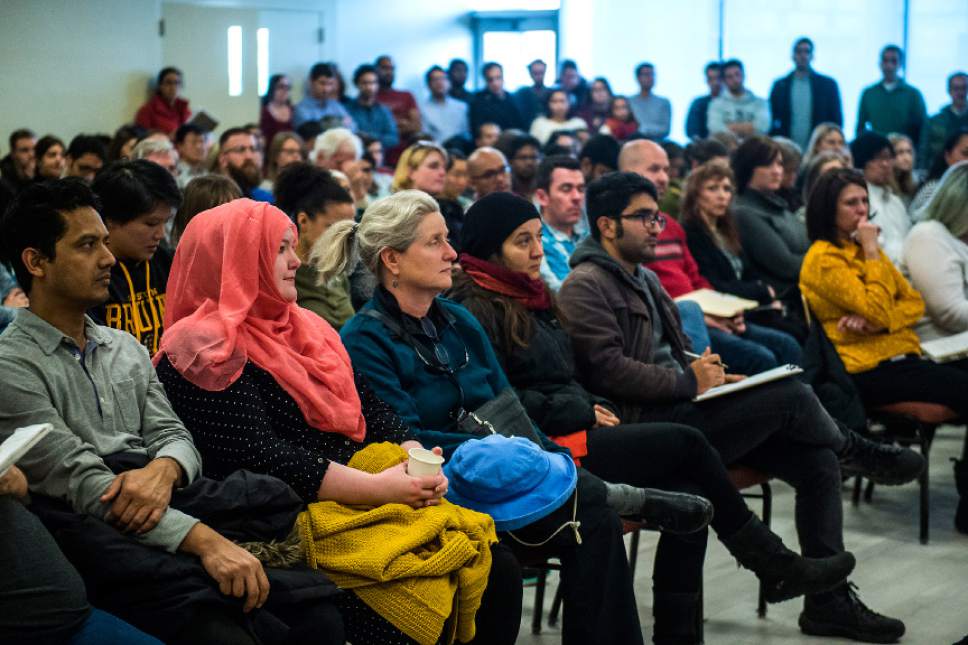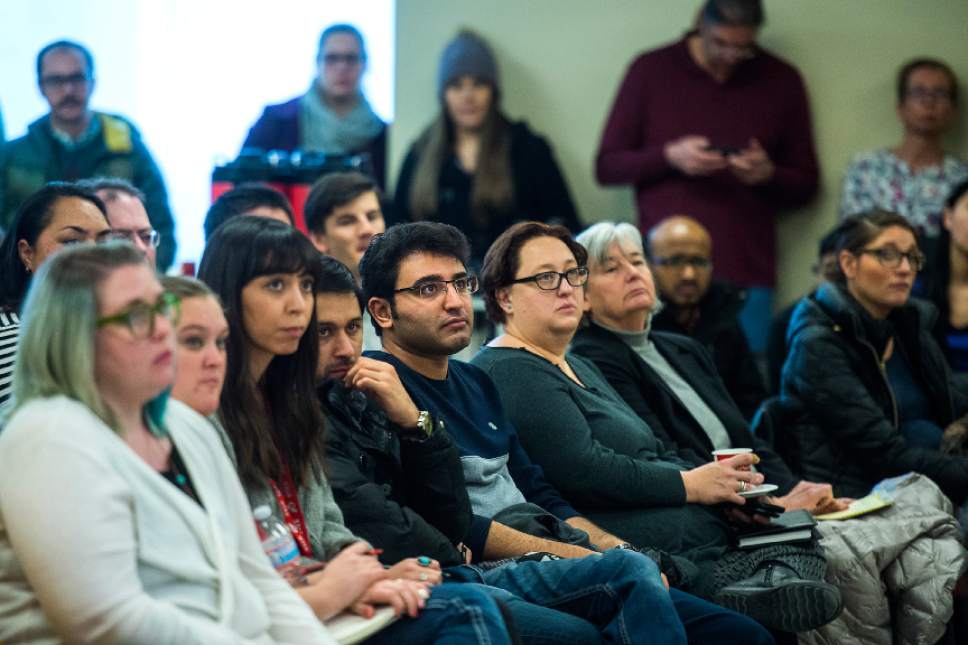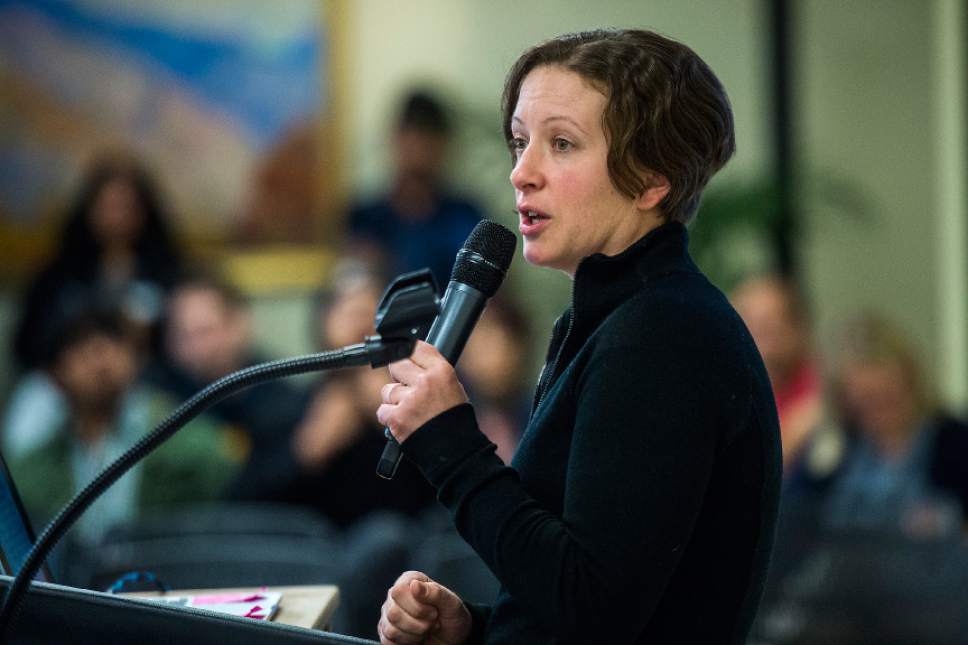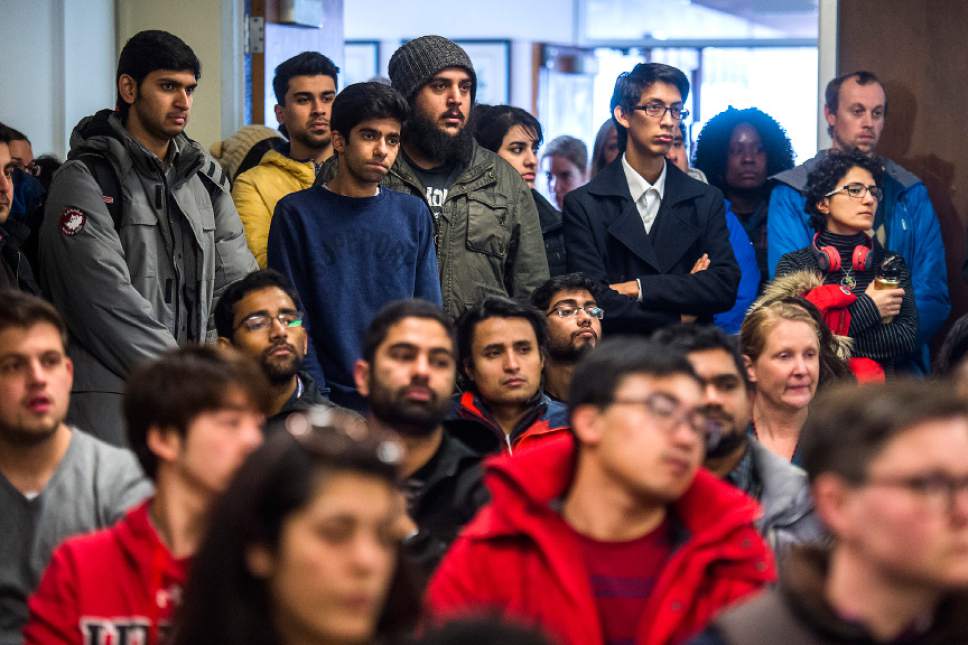This is an archived article that was published on sltrib.com in 2017, and information in the article may be outdated. It is provided only for personal research purposes and may not be reprinted.
Don't go home.
That was the message delivered to foreign University of Utah students and faculty Tuesday — fallout from President Donald Trump's executive order to temporarily ban immigration from seven Middle Eastern and African countries.
Despair was in the eyes of more than 100 people who gathered in the student union building seeking answers to the confusion surrounding Friday's executive order from the White House.
Chalimar Swain, director of the university's Office for Global Engagement and International Student and Scholar Services, told students and faculty from the countries identified in Trump's order — Iran, Iraq, Syria, Libya, Yemen, Sudan and Somalia — not to return to their countries of origin if at all possible.
She told the group that it is unclear whether the list on Trump's travel ban could be expanded.
"It's hard to get into the U.S. right now. And it doesn't feel very welcoming," Swain said. "There are a lot of unknowns; this is a very uncomfortable place to be."
Things are upside-down, said a 29-year-old Iranian master's degree candidate who identified himself only as Ardi. He is in the country legally, but doesn't want to be identified by immigration officials.
"One of the reasons we come here is that everyone is equal. ... This is a melting pot," he said. "Now it's none of that."
International students come to America to make a contribution, Ardi said. He will obtain his degree this spring in building science and was hoping to find employment in this country. Now he is unsure whether that is possible.
Five months ago, his parents applied for visitor visas so they could attend his graduation ceremony. That, too, is now uncertain.
Concerns were not limited to students and faculty from the countries named in the ban. Students from China, India and elsewhere asked questions probing the mandate and what it could mean to their future.
Students seeking a change in immigration status can apply, but officials have said processing such applications is on hold. Further, visa applications by citizens of countries not named in the ban may see delays, Swain said.
"We anticipate there will be more delays for everyone," she said.
The university has about 2,500 international students and 300 international visiting scholars/researchers, Swain said. About 260 of them are from the countries specifically named in the recent executive order.
"This also is impacting the university as a research institution," Swain said. "It's impacting researchers and their research efforts."
"Fear." That is how a 29-year-old Iranian woman who will graduate in May in computer science describes what is on her mind and that of her international student colleagues. "Students don't understand why this is happening," said the woman, who did not want to be identified. "In the past, we have felt very welcome. We are not feeling welcome right now."
Like many of her fellow students, she sees a future that is anything but clear. Although she is in the country legally, she doesn't know whether she will be able to pursue employment here. And she is taking Swain's advice and will cancel plans to visit home.
"It's very sad," she said. "I can't visit my family."
At Utah State University, President Noelle E. Crockett also advised students from the seven countries listed not to return home.
"The talent, perspective, and culture of our international students, faculty, and staff strengthen and enrich our teaching, research, and outreach programs," she said in a prepared statement. "We will not tolerate discrimination and harassment in the USU academic environment and workplace."
Salt Lake Community College, too, supports its international students and faculty, said President Deneece G. Huftalin.
"Salt Lake Community College is committed to, and is greatly enriched by, the open exchange of students, scholars and ideas from all over the world," she said in a news release.
"We remain committed to the well-being of students, faculty and staff who may be impacted by the recent executive order and will join with the rest of higher education to bring these concerns to the attention of policymakers and the public."
University of Utah students, faculty and others can seek information from the Office of Global Engagement and International Student & Scholar Services at 801-581-8876.









